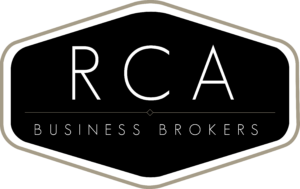
THE KEY LEGAL DIFFERENCES BETWEEN HOTELS AND MANAGEMENT RIGHTS
14/05/2018 by Frank Higginson – Hynes Legal
There are (obviously) two very different business models in the management rights and motel industries.
While everyone seems to write about one or the other, we thought that it would be interesting to compare the legal characteristics of both for our management rights and motel audiences.
For the purposes of this article, when we talk about a motel, we are talking about a leasehold motel. If you own a freehold going concern motel, a lot of the decision making issues fade away as you are in complete control of everything as both landlord and tenant.
A decision to enter either industry comes down to your own personal preferences around a range of factors.
Some of those factors might be what we cover below, so read on if you’re interested.
| Concept | Management rights | Motels |
|---|---|---|
| Legal documents | The main documents for a management rights business will be a Caretaking Agreement and a Letting Agreement (between the management rights owner and the body corporate).
There will also need to be a letting appointment in place with the owner of each lot in the letting pool. Sometimes these can be leasebacks as well under which a fixed return is paid (as opposed to an amount after management expenses). |
There will be a registered lease in place between the owner of the freehold land (landlord) and the motel operator.
There are no letting appointments because the motel operator is renting the motel rooms on their own account. |
| Tenure or term | Management rights agreements will have a term limitation of 10 years (Standard Module) or 25 years (Accommodation Module). They cannot go above that at law. | There is no limitation on term on a lease. It can be for as long as you can negotiate, but that will often be 25 to 30 years. |
| Other parties interested | There are three groups you need to deal with.
A body corporate made up of:
|
A single entity which is the landlord. |
| Incoming cash flow | There are two streams of income:
|
All of the income from motel guests in whatever form – tariffs, food and beverage and so on. |
| Expenses | Usual operational business expenses (bank charges, depreciation etc).
The body corporate usually pays for consumables used in maintaining the common property (chemicals, fuel etc). Caretaking equipment is sometimes yours but sometimes the body corporate’s. |
Usual operational business expenses (bank charges, depreciation etc).
The big difference here is that in a motel you pay rent to the landlord in exchange for exclusive occupancy of the motel. The landlord usually pays for capital type expenditure but all other expenses are usually the moteliers. It is critical these are properly set out in the lease. |
| Key drivers of counterparty | Presentation of gardens and grounds (owner occupiers) and investment returns (investors).
This can lead to (via owner occupiers) daily supervision in effect. |
Rent paid on time; the capital value of income stream from that.
Landlords usually do not regularly come onsite. |
| Licencing | Need a Property Occupations Act licence and a trust account when letting. If the business is caretaking only there is no need for a licence. | No licence to own a motel, but may need associated council health licences or a liquor licence to operate any ancillary businesses (i.e. a restaurant). |
| Residency | Might or might not be required to live onsite. This depends on the management rights agreements. | Usually, someone must reside onsite to manage the business. |
| GST | Usually no GST on tariffs/rents. | GST on tariffs/rents. |
| Day to day decision making | As a contractor to the body corporate, it is usual for there to be some direction provided at committee level. | The motelier can make all their own decisions on the day to day running of the business without referring to any other party. |
| Decision making with respect to the buildings and improvements | Some at committee level, some at general meeting level.
There is the ability to divide and conquer via personal relationships. |
The landlord.
One decision maker which makes this personal relationship very important. |
| Financial accountability | To all of the individual letting owners for income received and to any financier. | To landlord for rent and after that – no one (other than any financier) |
| Bank security | Protected under the Body Corporate and Community Management Act 1997 (BCCM Act) via notice (Qld only) – otherwise, a right of entry document is required. | Needs a right of entry document. |
| Statutory support | Management rights are relatively heavily supported via the BCCM Act. | Support in some key areas under the Property Law Act. |
| Food and beverage | Rarely offered in management rights. | Common in motels, whether that be a simple breakfast, or a fully stocked and licenced restaurant. |
| Obligations and duties | Set out in the management rights agreements – usually a very detailed list of what needs to be done from a caretaking/facility management perspective. | Set out in the lease – but generally, the motelier is left to their own devices as to how or what they do to ensure that the motel is maintained and kept in good repair and condition. |
Reference: Click here

Frank Higginson
Director and Legal Practice Director
Hynes Legal



